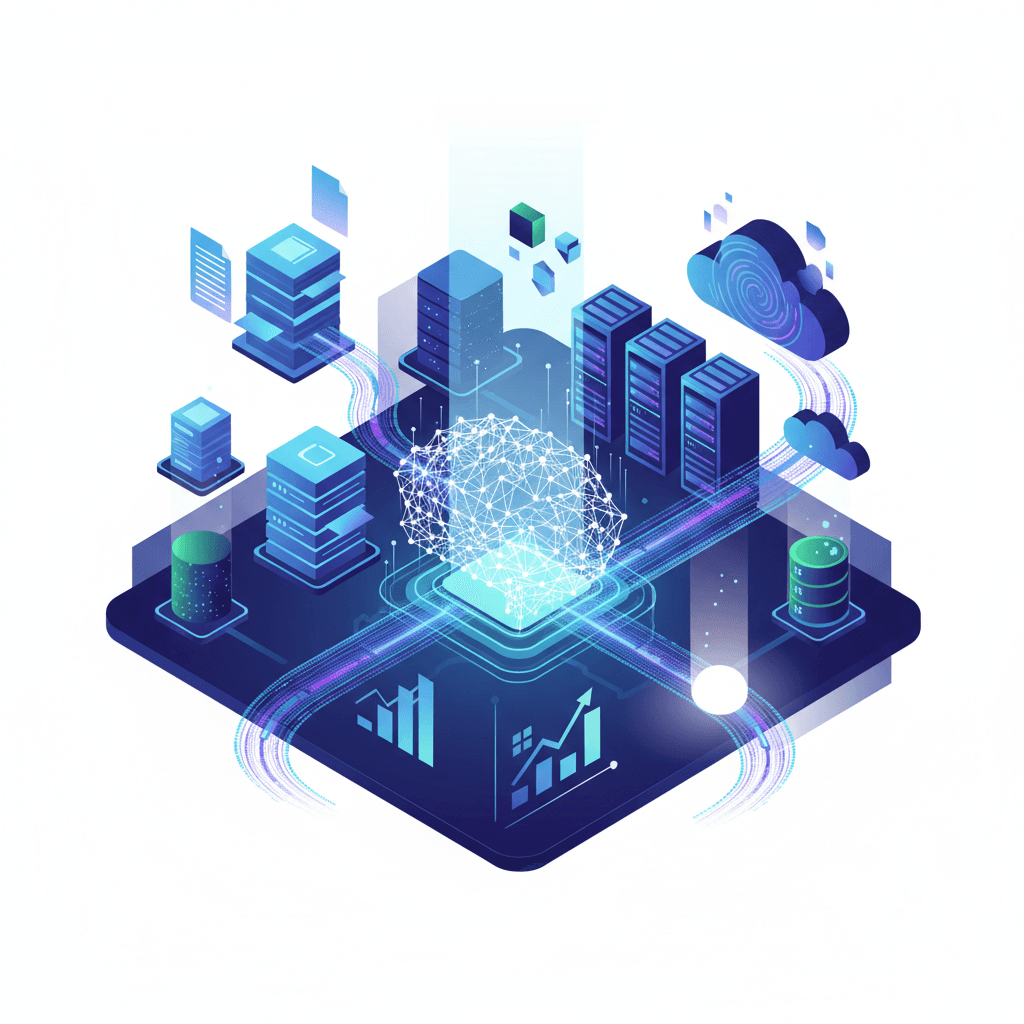OpenAI Unlocks Enterprise Data for ChatGPT, Creating Custom Company Analysts
ChatGPT taps into proprietary enterprise data, becoming a secure, specialized analyst unlocking tailored insights and boosting decision-making.
October 24, 2025

OpenAI is fundamentally transforming its ChatGPT from a general-purpose assistant into a specialized, custom analyst by enabling connections to internal enterprise data.[1] This strategic move addresses a significant limitation that has historically curbed the potential of generative AI in a corporate setting: its inability to access and reason over proprietary, internal information. By bridging this gap, OpenAI is unlocking the ability for its powerful language models to surface company-specific knowledge, providing tailored insights and automating complex workflows.[2][3] The development empowers employees to conversationally query vast internal data repositories, streamlining processes and enhancing data-driven decision-making in a way that was previously unattainable.[4][3][5] This integration signals a pivotal shift in the artificial intelligence landscape, moving beyond publicly available information to securely tap into the valuable, context-rich data that resides within an organization.
The core of this evolution lies in new features that allow ChatGPT, particularly through its enterprise-grade offerings, to connect with a company's existing systems and knowledge bases.[6][7] Through APIs and dedicated connectors, the AI can now integrate with tools like Google Drive, SharePoint, customer relationship management (CRM) systems, and other internal databases.[6][8] This connection is not a simple data dump; instead, it leverages sophisticated techniques such as semantic search and retrieval-augmented generation (RAG) to find and utilize the most relevant information in response to a user's query.[6][7] For example, an employee can ask a complex question in natural language, and the system will search internal documents, reports, and databases to construct an informed, context-aware answer.[4][5] This capability transforms the chatbot into an intelligent search and analysis tool that understands company-specific terminology, project names, and internal jargon, making it an indispensable resource for employees.[6][9] The system is designed to respect existing user permissions, ensuring that individuals can only access data they are already authorized to view, thus maintaining internal security protocols.[6][10]
By gaining access to proprietary data, ChatGPT evolves from a creative tool for drafting emails or generating general content into a powerful analytical partner. This shift allows the AI to perform tasks that are highly specific to an organization's operations, such as summarizing findings from internal research reports, analyzing sales data from a CRM to identify trends, or answering technical questions by referencing internal documentation.[4][7] This functionality effectively democratizes data analysis, enabling employees without technical expertise to extract valuable insights simply by asking questions.[4][5] For business leaders, this means faster access to critical information, which can accelerate decision-making and boost overall productivity.[2][11][12] The potential applications are vast, ranging from accelerating customer support with instant access to company data to optimizing human resources by efficiently retrieving and analyzing employee records.[4] This move positions ChatGPT as a direct competitor to traditional business intelligence and enterprise search tools, offering a more intuitive, conversational interface for data exploration.
This advancement carries profound implications for the broader AI and enterprise software industries, signaling a move toward more integrated and intelligent business ecosystems. As AI becomes deeply embedded in core business processes, it can automate repetitive tasks, improve data quality, and provide a consolidated, trusted view of information from disparate sources.[13][14] The ability of AI to learn from and adapt to an organization's specific data environment promises to enhance operational efficiency and drive innovation.[9][14] However, this deeper integration also brings significant challenges to the forefront, particularly concerning data security and privacy. The risk of inadvertently exposing sensitive information, such as personally identifiable information or intellectual property, is a primary concern for any organization adopting this technology.[15] Companies must implement robust governance frameworks and train employees on the responsible use of AI to mitigate these risks.[16][15]
Recognizing that trust is paramount, OpenAI has implemented enterprise-grade security and privacy features for its business-focused offerings like ChatGPT Enterprise.[16][10][17] A crucial commitment is that OpenAI does not use business data from these services to train its models by default, ensuring that a company's proprietary information remains private.[16][10][17] Organizations retain full ownership of their inputs and outputs and can control data retention policies.[16][10] All data is encrypted, both in transit using TLS 1.2+ and at rest with AES-256, and the platform is compliant with standards such as SOC 2.[16][17] Administrative consoles provide oversight, allowing companies to manage users, enforce access controls, and monitor usage.[16] While these measures provide a strong security foundation, experts advise that organizations must remain vigilant, establishing clear policies and potentially utilizing third-party security tools to monitor AI interactions and prevent sensitive data leaks.[16][15][18]
In conclusion, OpenAI's initiative to connect ChatGPT to enterprise data marks a significant milestone in the practical application of generative AI for business. By transforming the AI into a custom analyst capable of understanding and interacting with internal knowledge, the company is poised to redefine how organizations leverage their most valuable asset: their data.[3] This evolution from a generalist tool to a specialized knowledge worker promises substantial gains in productivity, efficiency, and data accessibility. While the path to full integration requires careful navigation of security and privacy challenges, the potential to unlock collective knowledge and accelerate informed decision-making positions this technology as a transformative force in the enterprise landscape for years to come.
Sources
[2]
[3]
[4]
[5]
[6]
[8]
[9]
[10]
[12]
[13]
[15]
[16]
[17]